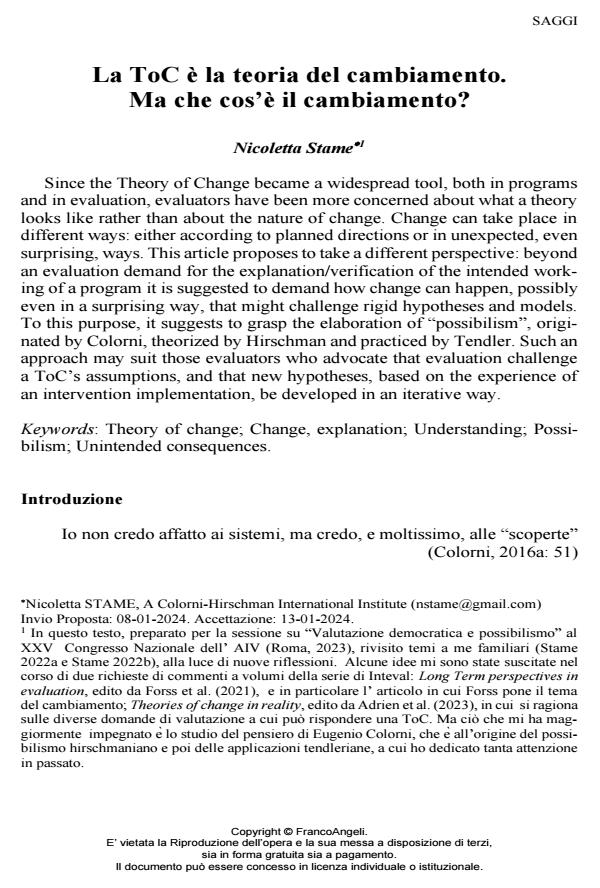La ToC è la teoria del cambiamento. Ma che cos’è il cambiamento?
Titolo Rivista RIV Rassegna Italiana di Valutazione
Autori/Curatori Nicoletta Stame
Anno di pubblicazione 2024 Fascicolo 2023/87
Lingua Italiano Numero pagine 21 P. 130-150 Dimensione file 356 KB
DOI 10.3280/RIV2023-087008
Il DOI è il codice a barre della proprietà intellettuale: per saperne di più
clicca qui
Qui sotto puoi vedere in anteprima la prima pagina di questo articolo.
Se questo articolo ti interessa, lo puoi acquistare (e scaricare in formato pdf) seguendo le facili indicazioni per acquistare il download credit. Acquista Download Credits per scaricare questo Articolo in formato PDF

FrancoAngeli è membro della Publishers International Linking Association, Inc (PILA), associazione indipendente e non profit per facilitare (attraverso i servizi tecnologici implementati da CrossRef.org) l’accesso degli studiosi ai contenuti digitali nelle pubblicazioni professionali e scientifiche.
Since the Theory of Change became a widespread tool, both in programs and in evaluation, evaluators have been more concerned about what a theory looks like rather than about the nature of change. Change can take place in different ways: either according to planned directions or in unexpected, even surprising, ways. This article proposes to take a different perspective: beyond an evaluation demand for the explanation/verification of the intended work- ing of a program it is suggested to demand how change can happen, possibly even in a surprising way, that might challenge rigid hypotheses and models. To this purpose, it suggests to grasp the elaboration of “possibilism”, origi- nated by Colorni, theorized by Hirschman and practiced by Tendler. Such an approach may suit those evaluators who advocate that evaluation challenge a ToC’s assumptions, and that new hypotheses, based on the experience of an intervention implementation, be developed in an iterative way.
Parole chiave:Theory of change; Change, explanation; Understanding; Possi- bilism; Unintended consequences.
Nicoletta Stame, La ToC è la teoria del cambiamento. Ma che cos’è il cambiamento? in "RIV Rassegna Italiana di Valutazione" 87/2023, pp 130-150, DOI: 10.3280/RIV2023-087008